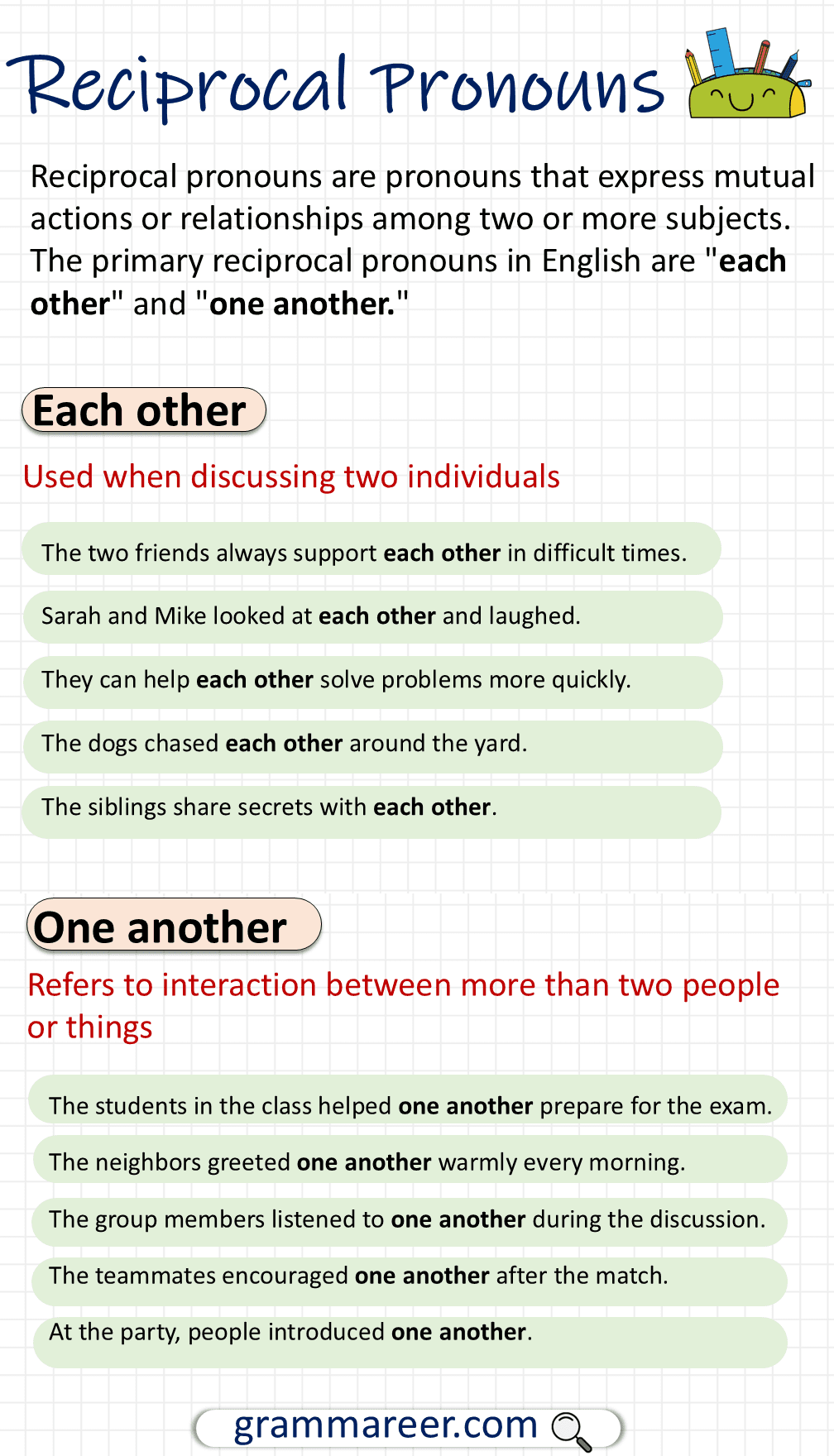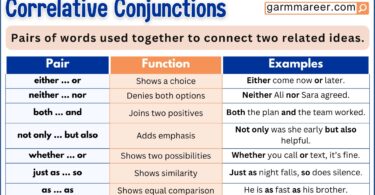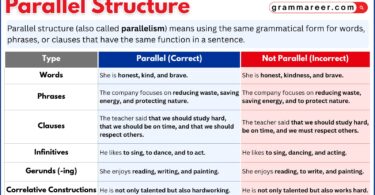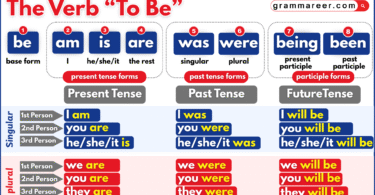Table of Contents
Definition
Reciprocal Pronouns are pronouns that indicate a mutual or reciprocal relationship between two or more entities. In simpler terms, they express actions or feelings that are shared or exchanged between subjects.
Examples of Reciprocal Pronouns
Reciprocal pronouns help us talk about things two or more people do to each other without repeating words. They make sentences shorter and clearer. Using these pronouns stops us from saying the same things over and over, keeping our language simple.
- The two friends always support each other in difficult times.
- Sarah and Mike looked at each other and laughed.
- The siblings share secrets with each other.
- They can help each other solve problems more quickly.
- The dogs chased each other around the yard.
- The students in the class helped one another prepare for the exam.
- The neighbors greeted one another warmly every morning.
- The group members listened to one another during the discussion.
- At the party, people introduced one another.
- The teammates encouraged one another after the match.
Types of Reciprocal Pronouns
There are only two reciprocal pronouns in English:
Each other – It is used when two people or things do something to or with one another. It shows that both are involved in the action.
- Fatima and Ali help each other with homework every evening.
- In the game, Hassan and Ayesha passed the ball to each other quickly.
- Mariam and Bilal listened to each other carefully to solve the problem.
- Ahmed and Sara bought gifts for each other on their anniversary.
- Yusra and Omar always tell each other the truth.
One another – It is used when three or more people or things do something to or with each other. It shows that everyone is involved in the action.
- Ahmed and Bilal helped one another to complete the project on time.
- During the study session, Fatima and Huda explained the answers to one another.
- In the meeting, the team members listened carefully to one another to understand different perspectives.
- The children shared their toys with one another during playtime.
- At the workshop, participants gave feedback to one another to improve their skills.
People often use “each other” and “one another” in the same way, but there’s a small difference. “Each other” is for two people or things. “One another” is better when talking about three or more people or things.
Uses of Reciprocal Pronouns
Reciprocal pronouns make sentences simpler and less repetitive when talking about actions shared between people or groups. They work well with verbs that show action, helping to highlight how people or things interact with each other. This way, speakers and writers can clearly express mutual activities without clumsy or repeated words.
Expressing actions: Reciprocal pronouns are frequently used with verbs like “love,” “help,” “know,” and “support” to show that the action is mutual.
- The team members support one another in difficult times.
Describing relationships: These pronouns are often used to illustrate relationships of cooperation, friendship, or shared experiences.
- They have known each other for years.
Rules for Using Reciprocal Pronouns
Plural Subjects: Reciprocal pronouns are only used when there are two or more subjects. They cannot be applied when referring to a singular entity.
- Mark and Julia respect each other’s opinions.
Mutual Actions: The action described by the verb should involve all parties acting upon one another.
- The dogs played with one another in the park.
Verb Agreement: Ensure that verbs used with reciprocal pronouns agree with plural subjects.
- They trust each other implicitly.
Each Other vs. One Another
Each other and one another are both reciprocal pronouns, used to express mutual actions or relationships between people or things. Although they are often used interchangeably in modern English, there is a traditional distinction between them.
| Each Other | One Another |
| Used when discussing two individuals. | Refers to interaction between more than two people or things. |
| Sarah and Tom gave each other gifts.
(This implies only two people are involved.) |
The team members congratulated one another after the victory.
(This suggests a group with more than two people.) |





